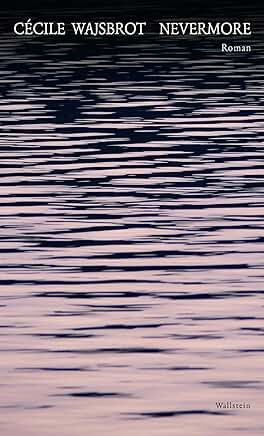Nevermore, Cécile Wajsbrot
Seagull Books, November 2024
Cécile Wajsbrot’s novel, Nevermore, is a meditation on loss and recovery through the act of translation and its recuperative powers. An unnamed translator mourning the loss of a close friend retreats to Dresden to translate the ‘Time Passes’ section of Virginia Woolf’s To the Lighthouse. Translating this lyrical evocation of time and its devastations in a city to which the writer has no connections and where neither her own language nor Woolf’s are spoken offers an interruption to the course of her life that allows her to immerse herself more profoundly in this prose-poem of ephemerality.
The narrator delves into phrases from ‘Time Passes’ and subjects them to the “inexact science and imperfect art” of translation. This, in turn, leads her to wide-ranging reflections on other instances of loss, destruction and recovery including the Chernobyl disaster, the High Line in New York City, the bombing of Dresden and Wallmann’s commemorative Bell Requiem Dresden, the evacuation of the Hebridean island Foula’s inhabitants, Hiroshi Sugimoto’s photographic series of seascapes, the Ville d’Ys, Debussy’s Cathédrale englouti, and Ceri Richards’ series of paintings by the same name, and others.
Berliner Magazine Interview with Cécile Wajsbrot
PRAISE FOR NEVERMORE
A TLS Book of the Year: “In Cécile Wajsbrot’s Nevermore , a writer and translator travels to Dresden to translate Virginia Woolf’s “Time Passes” (from To the Lighthouse) into French: “a text on time’s destruction in a city once destroyed by war”. As she translates she replays scenes from her past, including the story of a friend whose death is mysteriously connected to her desire to leave Paris for a while. Tess Lewis’s elegant translation of Nevermore adds one more layer to this intriguing book.” Beverley Bie Brahic TLS
“Nevermore is the story of a woman who is consumed by grief, travels to Dresden, and decides to translate the section “Time Passes” from Virginia Woolf’s To the Lighthouse. The narrator finds resonances between different abandoned places where nature has reclaimed the land, such as the ruins of Chernobyl, the French village of Fleury, and the Scottish island Hirta, and the High Line in New York City. Wajsbrot showcases how the mind of the translator works, offering several possibilities for each sentence. As a whole her portrayal of translation is beautiful, treating it as a kind of healing. It’s also rooted in experience—Wajsbrot herself translated Woolf’s The Waves.” Arielle Burgdorf Electric Lit
Books We Can’t Wait to Read: Nov 2024: A meditation on loss and recovery through the act of translation and its recuperative powers. An unnamed translator mourning the loss of a close friend retreats to Dresden to translate the “Time Passes” section of Virginia Woolf’s novel To the Lighthouse. Translating this lyrical evocation of time and its devastations in a city with which the writer has no connections and where neither her language nor Woolf’s are spoken offers an interruption to the course of her life. She immerses herself in this prose poem of ephemerality. Write or Die Magazine
“… Wajsbrot’s narrator takes us through the conundrums of translation, struggling to balance the musicality and meaning of Woolf’s prose in French. Of course, reading the English edition, there’s the meta aspect of Tess Lewis’s masterful translation of Wajsbrot’s French into English. Lewis describes the different strategies she herself employed to replicate the narrator’s own efforts, and together, they give greater insight into the minutiae of translating—both joyful and frustrating, both the gains and the losses—than anything else I’ve seen rendered in fiction.” Eva Dunsky, Asymptote



